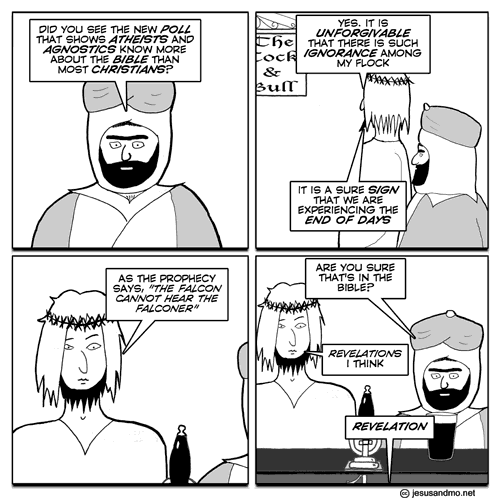
It is tough to admit it but I am no longer the “younger generation.” Sure I use twitter, facebook, and often have the gadgets. Folks are saying that twitter and facebook are really for the old folks anyway so maybe that isn’t a sign of my hipness. But when it comes to education and preaching I think that we are very often in danger of altering the message rather than the means of delivery. When Paul said he became all things to all people (1 Cor. 9:22) he was not saying that he would alter the Gospel to meet a different audience’s perspective (if they didn’t like the idea of Christ’s death as an atoning sacrifice, for example, he did not say that it was merely an example of love). Rather he was saying that he would meet people where they were in the condition that they were in. The Bible must be translated into every languages and only some of them are verbal.
This is true for education as well. I certainly believe that we need to understand the nature and character of our students today and we should explore modes of delivery that will work best for our/their current context (which is not the same for everyone, we have commuters, adult learners, military, etc.). But our goals and the content should not necessarily change. The obvious exception to the content is, of course, where new knowledge is being developed; we need to stay up-to-date in our fields and incorporate new discoveries and theories into our courses. As much as I am glad to see folks using the iPad, for example, in English classes, I worry sometimes that in some people’s rush to incorporate the latest gadget they are not only potentially leaving some behind they are also running the risk of making the course about the tools rather than the subject.
In short, whatever modes and methods we use we need to keep our eyes on the “course objectives and learning outcomes,” even in the church.





One thought on “Connecting to younger generations”
This is an excellent post, and very timely! As an LDS seminary teacher, one of my most important tasks is to teach the gospel, not my interpretation of it. It is crucial to the stability and growth of the church that I keep my teachings consistent with the gospel of Jesus Christ. I want my students to have a firm understanding of the gospel of Jesus Christ, and I want them to know that it is timeless. It works for any generation, and need not be altered to adjust to “political correctness”, or other popular logic or theories of the day.